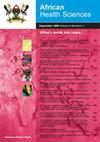人类免疫缺陷病毒和乙型肝炎病毒合并感染患者肠道微生物与肝脏和免疫功能的相关性
IF 0.9
4区 医学
Q3 MEDICINE, GENERAL & INTERNAL
引用次数: 0
摘要
目的:人类免疫缺陷病毒(HIV)与乙型肝炎病毒(HBV)合并感染已威胁到HIV感染者的生存。探讨hiv /HBV合并感染患者肠道微生物与肝脏及免疫功能的相关性。 方法:选择2018年1月至2020年6月诊断为HIV抗体和HBV表面抗原阳性的患者86例作为HIV/HBV合并感染组。选取HBV表面抗原阳性患者86例,健康人86例,分别作为HBV感染组和对照组。通过Pearson分析探讨肠道菌群与肝功能、炎症指标及免疫细胞的相关性。 结果:与对照组比较,HIV/HBV合并感染组患者T淋巴细胞(CD3+)、辅助性T淋巴细胞(CD4+)、细胞毒性T淋巴细胞(CD8+)、CD4+/CD8+、自然杀伤细胞(NK)的比例和数量均降低(p < 0.05)。IL-2、IL-6、IL-17、ALT、AST、GGT、DBiL和TDBi水平与双歧杆菌、乳杆菌和拟杆菌数量呈负相关,与肠杆菌和肠球菌数量呈正相关(P<0.05)。IL-10水平及CD3+、CD4+、CD8+、CD4+/CD8+、NK细胞比例与双歧杆菌、乳杆菌、拟杆菌数量呈正相关,与肠杆菌、肠球菌数量呈负相关(P<0.05)。结论:HIV加重HBV患者肝损害和免疫炎症反应。 关键词:肠道菌群;肝功能;炎症因子;免疫;人类免疫缺陷病毒;乙型肝炎病毒。本文章由计算机程序翻译,如有差异,请以英文原文为准。
Correlations of intestinal microorganisms with liver and immune functions of patients with human immunodeficiency virus and hepatitis B virus coinfection
Objective: Human immunodeficiency virus (HIV) and hepatitis B virus (HBV) coinfection has threatened the survival ofHIV-infected people. To explore the correlations of intestinal microorganisms with liver and immune functions of patients withHIV/HBV coinfection.
Methods: Eighty-six patients positive for HIV antibody and HBV surface antigen diagnosed from January 2018 to June 2020were selected as HIV/HBV coinfection group. Another 86 patients positive for HBV surface antigen and 86 healthy people wereselected as HBV infection and control groups, respectively. The correlations of intestinal flora with liver function, inflammatoryindices and immune cells were explored through Pearson’s analysis.
Results: Compared with control group, the proportions and numbers of T lymphocytes (CD3+), helper T lymphocytes (CD4+),cytotoxic T lymphocytes (CD8+), CD4+/CD8+ and natural killer (NK) cells decreased in HIV/HBV coinfection group (P<0.05).IL-2, IL-6, IL-17, ALT, AST, GGT, DBiL and TDBi levels were correlated negatively with Bifidobacterium, Lactobacillus and Bacteroidesnumbers, but positively with Enterobacter and Enterococcus numbers (P<0.05). IL-10 level and proportions of CD3+, CD4+,CD8+, CD4+/CD8+ and NK cells were correlated positively with Bifidobacterium, Lactobacillus and Bacteroides numbers, but negativelywith Enterobacter and Enterococcus numbers (P<0.05).
Conclusion: HIV aggravates the liver damage and immuno-inflammatory response in HBV patients.
Keywords: Intestinal flora; liver function; inflammatory factor; immune; human immunodeficiency virus; hepatitis B virus.
求助全文
通过发布文献求助,成功后即可免费获取论文全文。
去求助
来源期刊

African Health Sciences
MEDICINE, GENERAL & INTERNAL-
CiteScore
2.30
自引率
0.00%
发文量
179
审稿时长
>12 weeks
期刊介绍:
The African Health Sciences is an internationally refereed journal publishing original articles on research, clinical practice, public health, policy, planning, implementation and evaluation, in the health and related sciences relevant to Africa and the tropics. Its objectives are to: Advocate for and promote the growth of reading culture in sub Saharan Africa; Provide a high quality journal in which health and policy and other researchers and practitioners in the region can and world wide, can publish their work; Promote relevant health system research and publication in the region including alternative means of health care financing, the burden of and solution of health problems in marginalized urban and rural communities amongst the displaced and others affected by conflict; Promote research and the systematic collection and collation and publication of data on diseases and conditions of equity and influence; Promote development of evidence-based policies and guidelines for clinical, public health and other practitioners. African Health Sciences acknowledges support provided by the African Health Journals Partnership Project that is funded by the US National Institutes of Health (through the National Library of Medicine and the Fogarty International Center) and facilitated by the Council of Science Editors.
 求助内容:
求助内容: 应助结果提醒方式:
应助结果提醒方式:


